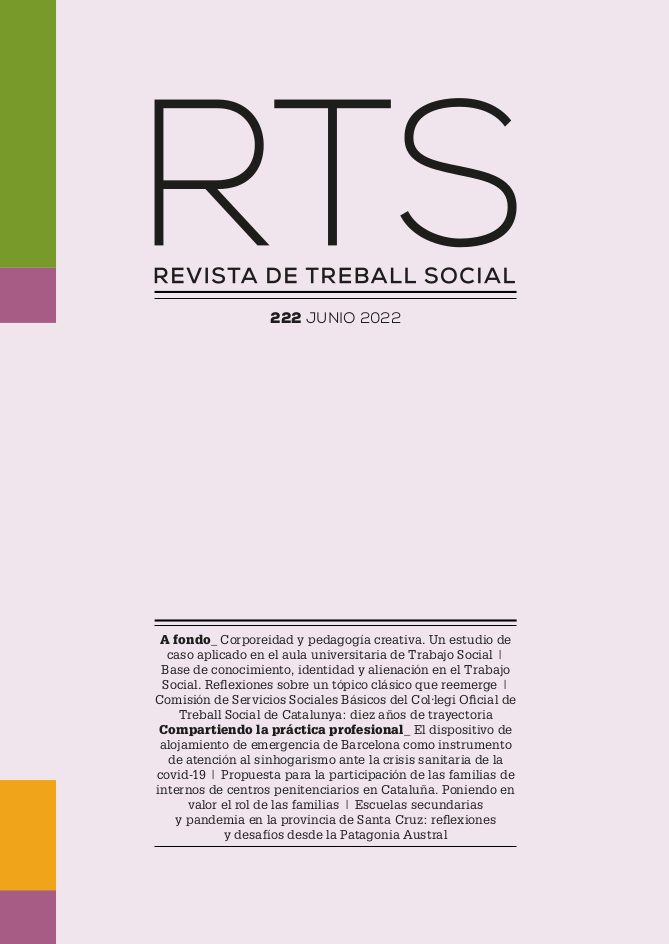This theoretical paper reflects on the relationship between knowledge base, identity and professional alienation. Although it refers to a classic topic in social work, it is no less relevant in the current context. If the knowledge base is necessary to define the field and professional autonomy, it is concerning when a lack of clarity is still perceived in defining
the substantive theoretical matter of professional interest. Considered a problem of command, its weaknesses may explain the developing tensions when facing the various contingencies in practice. Therefore, it is justified by the recurring proposition from professionals and advanced students in relation to the weakness of the knowledge base and the manifestations of identity-based discontent it entails.
From a hermeneutic standpoint, the findings of the author’s research, bibliographic sources and professional training experiences are retrieved and analysed, both at undergraduate level within the sphere of systematisation of pre-professional practices, and at postgraduate level within the specialty of forensic social work in Argentina.
It is expected to prompt new questions and to give rise to systematic research.





